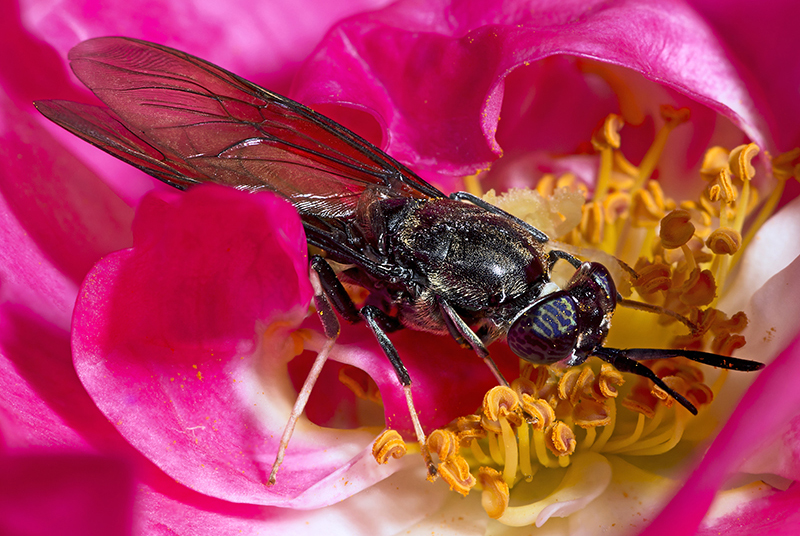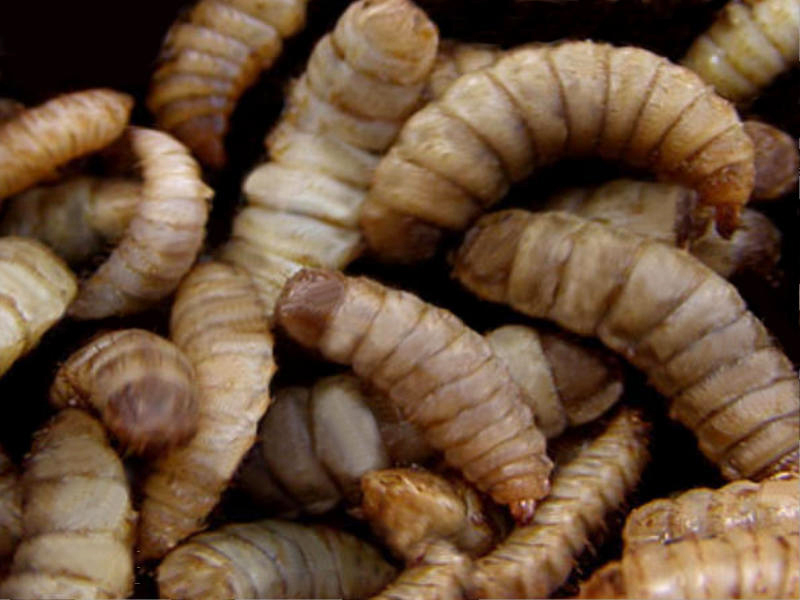
Use of Soldier Flies in a Sustainable Food Production System

CRARS co-founder Lee Altier is leading a research project at the University Farm exploring the use of Soldier Flies in Aquaponic food production. Aquaponics is a method of raising fish and growing plant foods in a single integrated system. Read more about Aquaponics at Chico State here(opens in new window).
The impact of climate change and soil loss and degradation are already forcing the need for innovative solutions for addressing food and water insecurity. Fish farming, for example, is becoming increasingly necessary because of declining wild fish populations due to overfishing and warming oceans. However, there is now a growing need to manage the sanitary conditions of fish raised in captivity and to ensure that the food they eat is nutritious and healthy. Food waste is also a consideration. According to an assessment by the UN Food and Agriculture Organization (FAO) (PDF), about 8% percent of all global greenhouse gases caused by human activity come from food waste. Soldier Flies could provide benefit in addressing all these concerns.
 Soldier Flies reproduce prolifically and their larvae grow extremely rapidly without being harmful pests. The larvae very effectively consume food waste while their digestive systems naturally destroy harmful bacteria. They are also high in protein, digestible fat, calcium and iron. Insects are already a favorite food of a variety of fish species. Soldier Flies were recently approved by the FDA as a component in fish food.
Soldier Flies reproduce prolifically and their larvae grow extremely rapidly without being harmful pests. The larvae very effectively consume food waste while their digestive systems naturally destroy harmful bacteria. They are also high in protein, digestible fat, calcium and iron. Insects are already a favorite food of a variety of fish species. Soldier Flies were recently approved by the FDA as a component in fish food.
The Associated Students Sustainability Office provided an $8000 grant to fund the Soldier Fly project. Currently, a team of five engineering students are working on it. They spent last semester (Fall 2018) designing the system and this semester (Spring 2019) they are building it. With the grant money, they purchased a 6x10' utility trailer that will be insulated and equipped with heating and cooling to maintain a constant temperature of 85 deg. F. Pre-consumer food waste from the campus cafeteria will be supplied to the fly larvae. Separate sections in the unit will simultaneously be hatching eggs, feeding larvae, and promoting the mating of adult flies. Larvae will be fed to the koi fish in the 1,500 gal fish tank of the Aquaponics Unit(opens in new window).
Read a scientific review of Black Soldier Flies as animal feed (and human food)(opens in new window).
